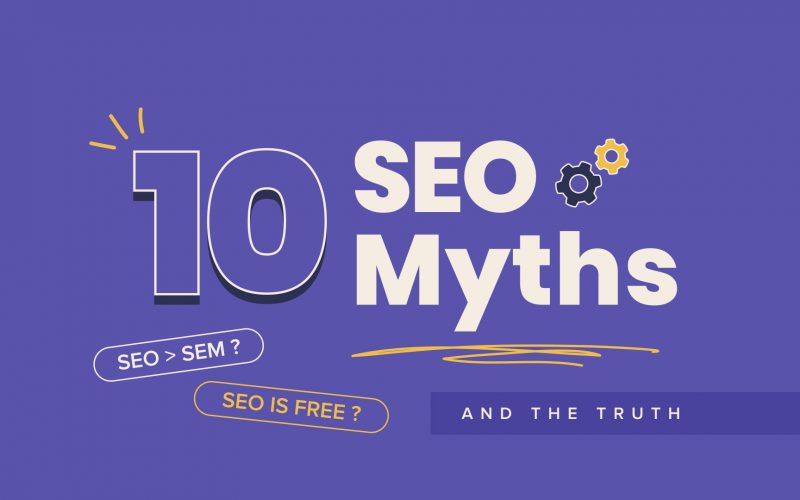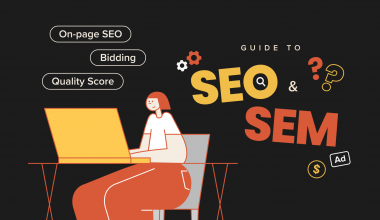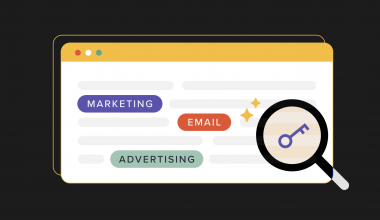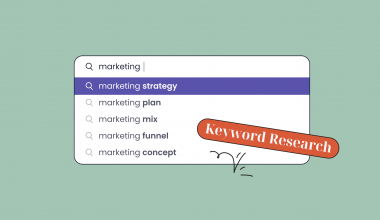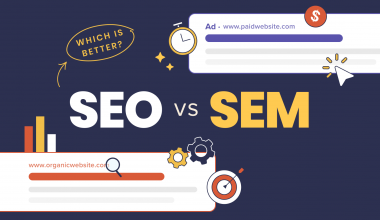Are you up to date on the latest SEO trends? If not, you’re not alone. SEO is a complex and ever-changing field, and it can be tough to keep up with the latest best practices. However, knowing the latest trends isn’t the only important thing when it comes to SEO. You also need to be aware of the common misconceptions about SEO.
Many people think they know everything there is to know about SEO, but the truth is that there are a lot of myths and misconceptions out there. In this blog post, we’ll dispel some of the most common SEO myths and set the record straight.
1. “SEO is just about writing content”
No, SEO is not just about writing blogs, although it may seem like it. SEO involves a number of tasks that could equally affect the result, some of which are keyword research, content writing, link building, site mapping, web designing and development. So much to unpack that content writing is just a part of SEO.
Read these blogs if you want to know more about SEO:
2. “I don’t need to do keyword research, I know what I want to target”
What are the keywords that are currently trending? What do your ideal clients normally search for? What kind of queries do they ask? What phrases do they search for when they’re ready to buy?
You can’t just think keywords out of thin air, I mean you can, but you’ll also need to research and gather data to back you up. Your SEO content wouldn’t be as effective if you didn’t do any keyword research. Remember, it’s not about you and your brand, it’s about your audience and what they want. It’s no use if you write 10 articles and no one reads them.
The words or phrases you use may not be the ones your audience type in the search engine. As a rule of thumb, layman Internet users wouldn’t know the technical terms for the industry, so their queries would be more laid back and vague. For instance, they might not know all the specific types of skirts like a midi skirt, maxi skirt or bodycon. So, they would just search for “long skirt” or “casual skirt”. If you didn’t research this, you might miss out on a huge opportunity to generate web visitors.
By researching, analyzing and filtering the keywords, you’ll get a more accurate group of keywords and content ideas to write for. If you’re not sure where to start, click on these blogs to learn more:
3. “Link Building is buying links”
Nope, sorry, it’s not. Buying links is bad, it can harm your website ranking because it is a violation of Google Webmaster’s Guidelines. There are tons of ways to build your backlinks and buying is not the best practice.
Some of the good practices of link building are sharing your blogs on social media and guest posting. If you want to get a headstart, here is All You Need to Know about Link Building.
4. “The more keywords I stuff, the higher ranking I’ll get”
That is absolutely not true! Stuffing keywords is considered a “black hat” tactic that could negatively impact your website ranking. Think about it, when you stuff keywords, your content would be weird, non-sensical and ineffective to the readers. They would most probably leave your page when they don’t understand what you’re writing. That means fewer web visitors which signifies inaccurate and invaluable to Google.
Google would penalise your website when the content feels unnatural and out of context with repeating keywords. Not only will you lose your ranking, your website’s visibility and SEO score would definitely decrease. Hence, instead of trying to trick Google’s algorithm, it’s best to focus on creating quality content for your web visitors.
5. “SEM is more effective than SEO”
This really depends on your digital marketing goals and priorities. Both SEM and SEO have their own benefits. Together, they could help a business achieve high website rankings, and generate more web visitors and conversions.
Our blog, SEO vs SEM: Which is better?, perfectly illustrates the advantages and disadvantages of SEM and SEO. It also highlights when you should use SEM and SEO.
6. “SEO is free”
Nothing is free in this world. While SEO seems like it doesn’t cost anything, it requires time, effort and skills. Sometimes, especially when you don’t have the right knowledge, it also requires money to hire a team of experts.
7. “My mobile site won’t affect my SEO”
SEO doesn’t only consider your website’s desktop version but also the mobile version too. As we are more and more reliant on our phones, search engines have also seen a rise in mobile Internet users. They take into account your mobile site loading speed, user experience and interface to rank your site. So, if you haven’t optimized your website’s mobile version, you’re really losing some brownie points here.
8. “Title Tag and Meta Description are not important”
This is obviously not true! Title Tag and Meta Description are the ones that ultimately decide if the Internet users wanted to click on your website. They are your website’s first impression that informs the users what your page is about.
You should make good use of your title tags and meta description. Make them concise and straightforward because they have a limited character count. Insert relevant and suitable keywords to help the ranking. Most importantly, write enticing copy that sparks curiosity so the users would click to learn more.
9. “I can’t duplicate my content, Google would penalise me”
Google wouldn’t directly penalise your duplicated content. But it could still impact your organic ranking. If you have duplicated content on your website, Google would divide the authority among them which result in diluting your rankings. Of course, if you try to manipulate the rankings by creating a lot of duplicated pages on your website, the search engine would group them into the index and show an alternative page instead.
One best practice for duplicating content is to provide a canonical link. Medium is one platform that allows you to duplicate using a canonical link. It is a great way to create backlinks and reach a wider audience.
10. “I can do SEO alone”
You can if you were a magician. No, seriously, you can do SEO by yourself when you’re just starting up and you have all the necessary resources and skills like web design, UXUI design, coding and content writing. But as time goes by, you’ll definitely find yourself struggling to keep up with all the tasks. Even SEO expert, Brian from Backlinko needed to hire a content team to manage his SEO.

SEO is no one man’s task. It can be overwhelming, stressful and demanding for one person to manage everything. The best choices are recruiting a team of SEO marketers or outsourcing to an SEO agency.
There you have it! 10 common misconceptions and the truth behind them.



